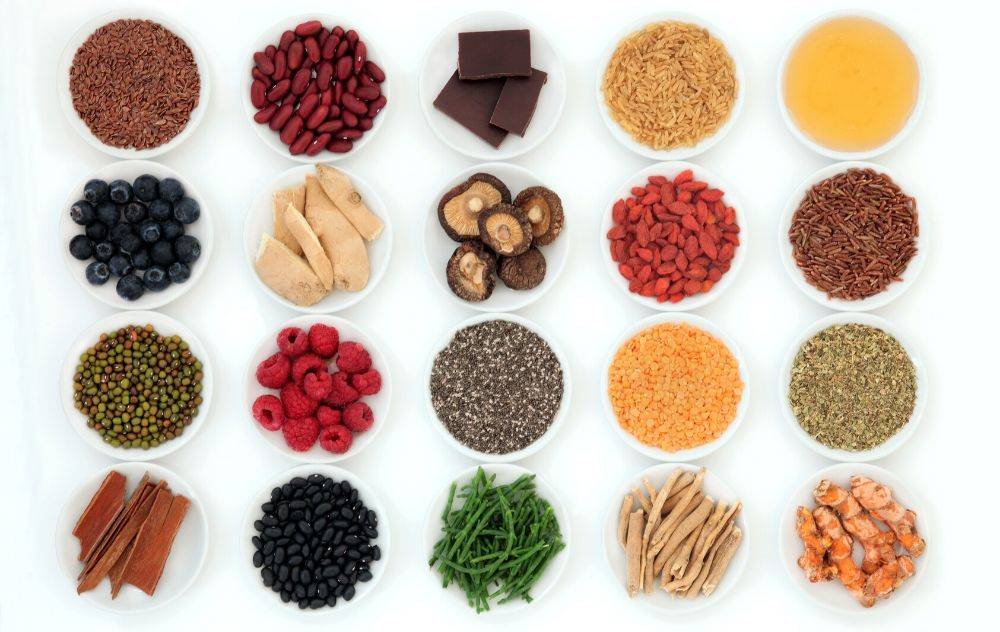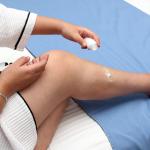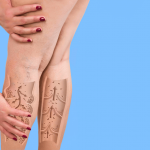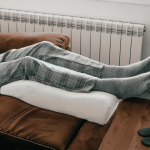
Good circulation is essential for keeping your body’s tissues and organs healthy. When blood flows efficiently, it delivers oxygen and nutrients where they’re needed and removes waste products. Certain herbs and spices may help support this process, especially when paired with healthy habits and, if necessary, medical care for underlying vein or vascular problems.
What Causes Poor Circulation?
Poor circulation happens when blood flow is restricted or slowed, often due to narrowed, weakened, or damaged blood vessels. This can affect your comfort, mobility, and long-term health.
In the legs, circulation problems are often linked to vein disease — a group of conditions that affect how your veins carry blood back to the heart. When vein walls or valves become weak or damaged, blood can pool in the legs instead of moving upward efficiently. Common vein problems include:
- Varicose veins – Enlarged, twisted veins caused by weakened vein walls and valves that allow blood to pool.
- Chronic venous insufficiency (CVI) – A condition where the valves inside your leg veins don’t work properly, making it harder for blood to travel back to the heart. Over time, CVI can lead to swelling, skin changes, and venous ulcers if left untreated.
Addressing circulation early — whether through lifestyle changes, herbal support, or medical treatment for vein disease — can help prevent these conditions from progressing.
Best Spices & Herbs for Blood Circulation
Some herbs and spices contain natural compounds that can help relax blood vessels, reduce inflammation, and improve blood flow. These herbs for circulation include:
Garlic: The sulfur compounds in garlic increase blood flow in the tissue. Studies show that garlic’s antioxidant properties prevent damage to blood vessel walls and are beneficial to blood vessels and the heart.
Cayenne Pepper*: Cayenne pepper contains capsaicin, which is what makes it hot. Capsaicin releases nitric oxide, which helps your veins relax and allows blood to move more freely. It helps lower blood pressure by expanding blood vessels and reducing plaque buildup in the arteries. Cayenne pepper can potentially alleviate symptoms of poor circulation, such as cold hands and feet.
Turmeric: Turmeric helps to dilate blood vessels and improve circulation. The active compound in turmeric, called curcumin, helps increase nitric oxide production, so your veins can relax and allow for blood to move more freely. Curcumin also reduces oxidative stress and decreases inflammation.
Ginger: Ginger contains natural compounds that widen blood vessels so that it’s easier for blood to move through the body. Ginger’s anti-inflammatory and antioxidant properties protect blood vessels from damage and reduce inflammation, thereby supporting healthy circulation. It may also help prevent blood clots by acting as a mild natural blood thinner.
A balanced diet rich in herbs that improve circulation can reduce circulation symptoms, such as cold hands and feet.
Essential Nutrients That Improve Circulation Naturally
In addition to herbs, knowing which vitamins and minerals support vein health can help you add foods to your diet that promote circulation. Here are six of the most essential nutrients that help improve blood flow that you should include in your diet:
- Vitamin C: Promotes collagen production for maintaining the structure and integrity of blood vessel walls.
- Vitamin B3 (Niacin): Helps reduce cholesterol levels and inflammation, both of which can impair circulation and contribute to vascular disease.
- Vitamin E: Prevents red blood cells from becoming sticky, reducing the risk of blood clots.
- Vitamin D: Great for bone health, along with supporting blood vessels, smooth muscle cells, the heart, and the immune system.
- Copper: Builds and repairs endothelial cells, the inner lining of blood vessels, to maintain their flexibility and strength.
- Potassium: Relaxes blood vessel walls and improves blood flow, which lowers blood pressure.
Including these nutrients in your diet supports overall circulatory health.
Supporting Circulation Holistically
While certain herbs for blood circulation can help, they work best alongside other lifestyle strategies such as. Some other natural remedies for poor circulation include:
- Staying active – Regular movement encourages healthy blood flow and reduces vein pressure.
- Avoid prolonged sitting or standing – Change positions often to prevent blood from pooling in the legs when sitting for too long.
- Maintaining a healthy weight – Supports vascular health and reduces strain on veins.
- Wearing compression garments if recommended – These can help improve blood flow in the legs.
Can Herbs for Circulation Replace Medical Treatment?
While herbs and natural remedies for poor circulation can be helpful, they do not cure vein disease. Conditions like varicose veins, CVI, or chronic leg swelling often require a medical evaluation. Herbal approaches are best used as complements to professional care, not replacements.
If you have risk factors for vein disease — such as a family history, standing or sitting for long periods at work, pregnancy, or previous blood clots — or if you notice possible symptoms like swelling, heaviness, or visible varicose veins, consider visiting a vein specialist for a check-in. Early evaluation can help identify problems before they progress.
Supporting Circulation Through Lasting Vein Treatment
If poor circulation is linked to vein disease, modern minimally invasive vein treatments can restore blood flow, relieve discomfort, and prevent further complications. These procedures are typically quick, require little downtime, and can significantly improve quality of life.





